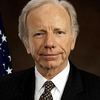Jillian Weinberger appears in the following:
The Military's Role in Political Change
Monday, February 21, 2011
As repressive regimes teeter and fall across the Middle East, the armed forces in these countries are in a consequential position. The Egyptian military quickly realized that President Mubarak’s hold on power was slipping. As protests erupted in Cairo, most of the armed forces refused to open fire on civilian protesters. However, the situation is radically different in Bahrain and Libya. What role are militaries playing in political change in the Middle East and elsewhere?
'The Great Game: Afghanistan' Performed for the Pentagon
Thursday, February 10, 2011
The audience at Sidney Harman Hall in Washington, D.C. usually buys tickets for Shakespeare or Oscar Wilde. But today’s performance — and the audience in line to see it — is completely different. In 2009, London’s Tricycle Theater performed “The Great Game: Afghanistan,” a seven-hour series of twelve plays commissioned by the theater’s director, Nicholas Kent. Last October, the Pentagon requested that Kent bring the play to Washington for two special performances. "The Great Game: Afghanistan" opens today for an audience that includes Pentagon staff, Afghan war veterans and President Obama’s advisers on Afghanistan
How Can Egypt Ensure a Peaceful Political Transition?
Monday, February 07, 2011
After fourteen days of protests, Egypt's President Mubarak claims that change is coming to his country, noting that Vice President Omar Suleiman met with opposition leaders yesterday. However, protesters dismiss the president’s claims; they want immediate action and have promised that demonstrations will continue until Mubarak steps down and the country reforms its one-party political system. How can Egyptians ensure a peaceful political transition? How has the political unrest in Egypt affected the Middle East as a whole?
The Prayer Campaign for a Slain Ugandan Gay Rights Activist
Thursday, February 03, 2011
Today is the National Prayer Breakfast, an annual event attended by President Obama and organized by “The Family,” a Washington-based fellowship of Christian politicians. “The Family” is also known for its close affiliation with the Ugandan politicians who proposed making homosexuality a capital offense. A coalition of religious leaders are now calling on President Obama to recite a prayer for David Kato, a prominent, Ugandan gay rights activist who was bludgeoned to death in January, at the National Prayer Breakfast today.
Egypt's Role in Extraordinary Rendition
Thursday, February 03, 2011
Egypt has long been a crucial ally to America's program of extraordinary rendtion — the practice of sending terror suspects to other countries for interrogation. When Egypt's President Mubarak dissolved his cabinet last week, he appointed Omar Suleiman as his new vice president. Suleiman is already well known in the United States, specifically as the C.I.A.'s key Egyptian contact for extraordinary rendition.
Privatizing Pensions: Solution to States' Financial Woes?
Thursday, January 27, 2011
We’ve talked a lot about states’ budget crises on The Takeaway. Yesterday we discussed legislation that would allow states to declare bankruptcy. Many state policymakers blame their financial woes on public employees and their expensive pension plans. Utah was in the same boat — until the state legislature enacted sweeping reforms, changing public pensions to private 401(k)s. Will this become law in other states? How will privatizing pensions affect state employees and taxpayers?
Defining Our Enemies, Defining Ourselves
Thursday, January 27, 2011
From Germany in World War I to Germany and Japan in World War II, to the Taliban and Al-Qaida today, the faces of America’s enemies have shifted over time. But how we define our enemies defines our nation in turn. We assume to be what they are not. How has this pattern affected the way nations see themselves and each other?
Should States Be Allowed to Declare Bankruptcy?
Wednesday, January 26, 2011
Forty-four states and Washington, D.C. anticipate budget shortfalls of over $125 million by the end of fiscal year 2011, according to the Center on Budget and Policy Priorities. Many state policymakers are blaming their budget crises on public sector employees, citing expensive pension plans. Crushing state debt has caused some federal lawmakers to consider a legislative remedy: allowing states to file for bankruptcy. But will declaring bankruptcy really solve states' pension woes? How will unions react? What other remedies exist for debt-ridden states?
Political Unrest Continues in Tunisia
Monday, January 24, 2011
After an uprising drove out Tunisia's unpopular and oppressive president out more than a week ago, political unrest continues. Protesters refuse to accept the interim government, a ruling coalition formed after President Ben Ali fled the country. Demonstrators claim that the interim government maintains close ties to President Ben Ali’s R.C.D. political party. On unfamiliar ground, what is the way forward for citizens and politicians?
China: Good for US Economy?
Thursday, January 20, 2011
Politicians often use "China" as a code word for job-stealing, economy-busting or general wrongdoing. But President Obama stressed the importance of a strong relationship between the two countries during Wednesday's joint press conference with China's President Hu Jintao. Obama described the U.S.'s economic relationship with China as "positive" and "constructive" while touting the $45 billion export deal he cemented during President Hu Jintao's visit. Today we look at how we have benefited from China’s growing economy.
New Revelations on Desert Storm, Iraq and the Soviet Union
Thursday, January 20, 2011
Twenty years after the United States launched Operation Desert Storm, newly-declassified archival transcripts give us a fresh look at the first Iraq War — with more than a few surprises. The documents reveal that as the U.S. was bearing down on Iraq in February 1991, Hussein turned to Gorbachev, hoping the Moscow leader would help him convince the United States to retreat.
Sen. Joe Lieberman Retires...With What Legacy?
Wednesday, January 19, 2011
Yesterday, Sen. Joe Lieberman (I-Conn.) announced that he will retire next year. From his public shaming of President Clinton after the Lewinsky affair in 1998, to his Vice Presidential bid with Al Gore in 2000, to his endorsement of John McCain for President in 2008, Joe Lieberman has had a career full of surprises. What is Lieberman's legacy?
Inside Goldman Sachs: The Privileges of Partnership
Wednesday, January 19, 2011
The Goldman Sachs partnership is the most exclusive club on Wall Street. Until now, little was known about the partnership, an elite group of the bank’s senior executives that has cashed in on billions since the it was formed in 1999. The New York Times reveals the secret life of Wall Street’s highest-paid employees — and how these executives are set to benefit from stock options they received during the bleakest days of the banking crisis.
Tunisia: A Historical Context for Current Conflict
Tuesday, January 18, 2011
Last Friday, Tunisian President Ben Ali fled to Saudi Arabia in response to a month-long political uprising. Yesterday, Tunisian Prime Minister Mohammed Ghannouchi formed a unity government — a government that includes officials that served under ousted President Ben Ali. But Tunisian protestors want change and most refuse to accept any government that includes members of the old, autocratic regime. Many Tunisians have never known another type of government: since gaining independence from France in 1956, Tunisia has been ruled by brutally repressive dictators.
In the Wake of Tucson Tragedy, Reflecting on the Media's Role in Fueling Vitriol
Friday, January 14, 2011
This has been a week of difficult coverage on The Takeaway. The deadly shooting in Tucson left us grappling with difficult questions – not only about the victims and their families, but also about gun control, mental illness, political discourse, extremism, the media and free speech – questions that cut to the very heart of Americans values. What can we learn from the Arizona shooting? How should we reflect on this terrible tragedy?
Who Will Be the Next RNC Chair?
Friday, January 14, 2011
Conservatives from across the country have convened in Washington this week to elect the next Republican National Committee Chair. With the 2012 presidential election right around the corner, Republican officials are looking for a leader who can rally the base, attract new voters and, of course, raise money. Michael Steele, the current RNC chair, doesn't seem to have enough support to win a second term, although he has in some ways raised the profile of the office during his term. What else does the RNC Chair need to ensure a GOP win in 2012?
46 Years Later: Justice for a Civil Rights Murder Victim
Thursday, January 13, 2011
The American South caught political fire in 1964. Activism by local African-American organizations and college students from the North led to brutal murders at the hands of white Southerners. But many of the victims of the Civil Rights Movement were not members of political organizations or student committees. Louisiana native, Frank Morris, a Black shoe store owner who was burned alive by two white men in 1964, suffered simply because he was independent and served a racially mixed clientele.
From Hinckley to Loughner: The Insanity Defense
Thursday, January 13, 2011
In June 1982, John Hinckley, Jr. – President Reagan’s would-be assassin – was found not guilty by reason of insanity. The announcement sparked widespread public criticism, as many believed that the verdict, for all practical purposes, exonerated the man who tried to kill the president. Nearly thirty years later, it seems likely that Jared Loughner, the man charged with attempted assassination and murder after last weekend’s deadly shooting spree in Tucson, will also plead insanity in his case.
Haiti, One Year Later: Where Has the International Aid Gone?
Wednesday, January 12, 2011
Today marks one year since the devastating earthquake in Haiti. The country suffered tremendously on January 12, 2010: 230,000 dead, thousands more injured, businesses and homes reduced to rubble. And yet the year only brought more difficulties, as cholera struck the countryside and accusations of fraud haunted a hotly-contested presidential election. Half of all American households sent donations to Haiti in the months following the earthquake. But as over 800,000 Haitians continue to live in temporary camps, the situation still seems dire. Where has all the aid gone? Who has it helped? What difference has it made?
China Considers Requiring Families to Care for Elderly
Friday, January 07, 2011
Caring for the elderly has long played an important role in Chinese culture. But rapid economic growth has forced adult Chinese children to abandon their hometowns to find jobs in other parts of the country — often leaving their elderly parents on their own. This cultural shift has led Chinese officials to consider a law that would require adult children to care for their parents.



















